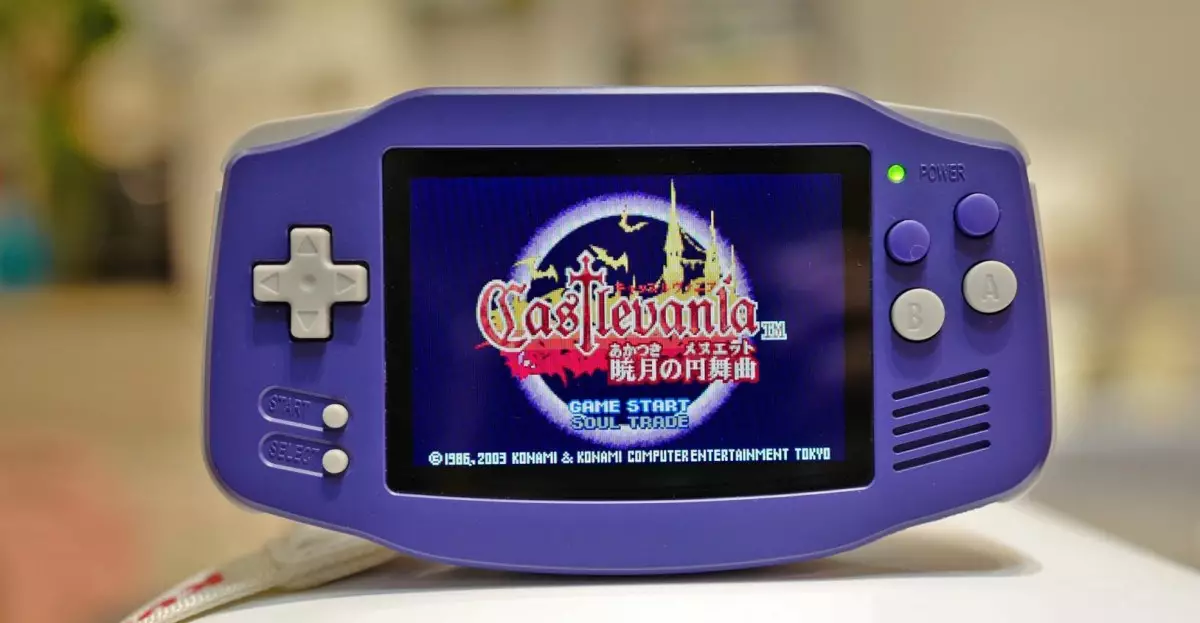In an age where nostalgia meets technology, the rise of retro gaming handhelds has captured the hearts of many. Companies like Anbernic have emerged as frontrunners in this niche market, delivering affordable and appealing alternatives to the beloved Nintendo Game Boy. However, looming tariffs imposed by the U.S. government threaten to disrupt this burgeoning sector. As a result, Anbernic’s recent decision to halt shipments to the United States reveals the precarious position these affordable gaming consoles find themselves in, and showcases the ripple effect that political decisions can have on everyday consumers.
Anbernic’s Strategic Shift Amid Tariff Concerns
Anbernic’s announcement to suspend shipments from China is not just a routine business decision; it’s a response to dramatic policy changes under the Trump administration. Hailing from China, Anbernic’s products have become known for their retro designs and affordability—often priced around $70, making them accessible to a wider audience. By opting to pause exports, the company places itself in a defensive posture, prioritizing the inventory available from its U.S. warehouse, free from the tariffs that can double or triple costs for consumers. This proactive measure illustrates how the company is trying to navigate an uncertain market landscape, putting customer concerns as a priority while facing financial hurdles.
For many customers, the allure of Anbernic handhelds is their exceptional ability to encapsulate the experience of playing vintage games, without the eye-watering price tags of original consoles. Yet the moment a price increase from tariffs is introduced, the appeal diminishes. This is not just a simple increase; it could fundamentally reshape the market for retro gaming devices.
The Domino Effect on Consumer Behavior
The situation brings forth a pivotal question for consumers: How much are they willing to pay for nostalgia? While products shipped from Anbernic’s U.S. warehouse remain tariff-free, it’s evident that a significant portion of the consumer base relies on the low-cost options that ship directly from China. By encouraging customers to shift their purchasing habits, Anbernic is not only safeguarding its business but also shaping consumer behavior in a manner that could have long-term consequences.
The hesitation to purchase from Chinese warehouses echoes a broader sentiment of vulnerability in the market. Gamers and collectors who turn to products from Anbernic often seek budget-friendly ways to engage with their favorite classic titles. The consequence of these tariff risks could lead to a more fragmented landscape where only higher-priced devices thrive, potentially alienating a core demographic that thrives on affordability.
The Broader Implications for the Tech Industry
It is crucial to recognize that Anbernic is not an isolated case; the imminent tariffs stand to impact many sectors that rely on affordable electronics from China. From smartphones to simple gaming devices, companies are facing up to the challenge of rising costs. The tech industry thrives on consumer-friendly pricing, and should these tariffs take root, we may witness a cascading effect where the price of innovation becomes a luxury rather than a widespread necessity.
The response from smaller companies like Anbernic underscores an existential threat to affordability in technology. This could stifle newcomers seeking to enter the gaming or tech space, thereby cementing the status quo of larger corporations that can absorb increased costs better. The dream of lowering barriers to entry through technology could be at risk.
Navigating the Evolving Landscape of Retro Gaming
It is a critical juncture for retro gamers and tech enthusiasts alike. The government’s actions surrounding tariffs will play a significant role in determining the future of accessible gaming. Anbernic’s smart pivot to U.S.-based warehousing demonstrates an adaptive strategy, yet the looming tariffs signal that the journey ahead may be fraught with uncertainty.
Ultimately, the evolution of the retro gaming niche, supported by companies like Anbernic, will rest upon consumers’ preparedness to navigate these financial changes. Tariffs may seem like an abstract policy issue, but in the realm of gaming, they have the potential to reshape desired products into unattainable luxuries—leaving enthusiasts craving a slice of their cherished childhood experiences.

